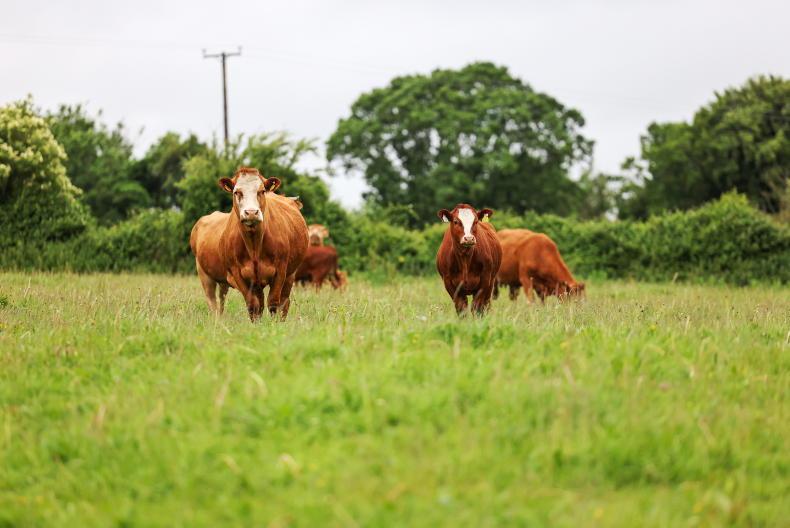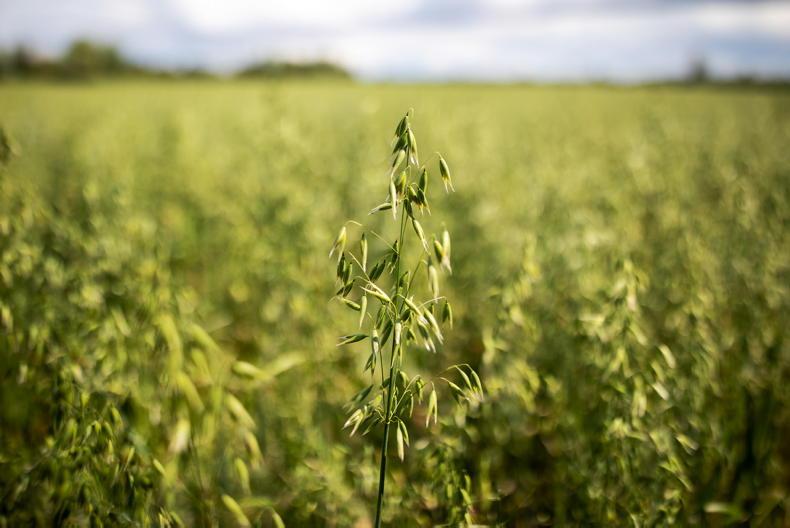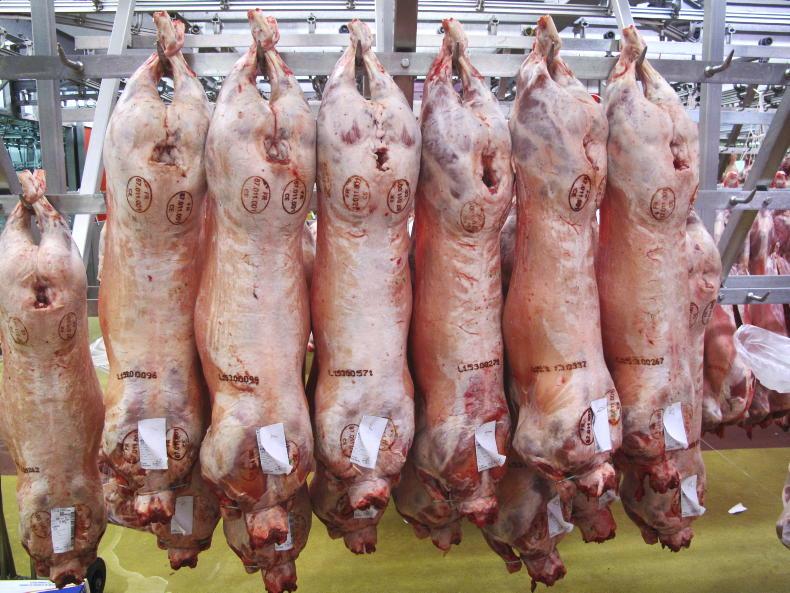The Organic Farming Scheme (OFS) opened for applications on Friday 3 November and will remain open until Friday 8 December. Reports from advisers and organic specialists point to continued high levels of interest from sheep farmers.
Considerations are being fuelled in some cases by high payment rates comparing positively to lower returns from conventional farming and also a lower probability of joining the Agri-Climate Rural Environment Scheme (ACRES) due to just 4,000 places being allocated. While payment rates are a big appeal, thought needs to be given as to how organic farming would suit your system.
The following questions are common queries being raised by farmers exploring their options at recent Teagasc information meetings and discussions with organic specialists.
Q. Over 60% of my lands are commonage. Can I draw down any OFS payment on it?
A. Commonage lands are not eligible for payment, as are lands with grazing rights, rented lands or non-organic productive lands. Commonage areas can be grazed by organic sheep once they are adequately hefted, but no payments will occur.
Q. If I cannot draw down payment on my commonage ground, can I convert the non-commonage ground to organic sheep production and continue to farm commonage lands conventionally with non-organic sheep?
A. Partial conversion of the farm/holding is allowed, but subject to specific conditions outlined in the scheme terms and conditions. These state that if both organic and conventional livestock are to be farmed, then different species must be involved, eg sheep and cattle. If both organic and conventional crops are to be produced, different species of plant, or different varieties that can be easily differentiated at all stages of growth and production must be used.
Q. I applied for an organic licence in 2022 and was approved in November 2022. I didn’t join the OFS at the time, as I wanted to see if I would get in to ACRES. I have a large area of land so will still receive a sizeable organic payment. I presume I am still eligible to apply to the OFS?
A. Yes, you are eligible to apply. However, you will not receive the maximum two-year conversion payment. That is because the online scheme application must be submitted within four months of the commencement date of the organic licence. Eligibility to the full two-year conversion payment expires two years from the commencement date of the organic licence.
Q. Can I be in ACRES and the Organic Farming Scheme?
A. Yes, but you need to study the terms and conditions carefully and talk to your adviser, as there are many actions that you must forego the OFS payment on that area to receive an ACRES payment. This includes high-payment actions such as riparian margins, wild bird cover, extensively grazed pasture, etc. This becomes a more attractive proposition for farmers with greater than 70ha, as you are foregoing a lower OFS payment to receive sizeable ACRES payments.
Q. Last year everyone who applied to the OFS was accepted into the scheme. Will it be the same this year?
A. The numbers accepted really depends on how many apply and the size of farms that apply. If this intake is oversubscribed and there is ranking and selection applied to score applications, then horticulture, dairy and tillage farmers, along with the most highly stocked farmers, get preferential access.
Q. Can I still buy conventional stock next year if I join the scheme?
A. Once you are notified you have been accepted in to the scheme, you can only buy organic or in-conversion stock. There are many more marts around the country now holding organic sales than there used to be and there’s also a new, free, online trading site developed by the Department of Agriculture called organictradinghub.ie. There is a derogation which may be granted by your organic certification body which permits the purchase of breeding animals (up to 20% replacements which have not previously lambed), where it is deemed organic animals of such type cannot be sourced.
Q. How long will it take the cattle and sheep that I already have to be certified organic?
A. These animals never become organic and as such cannot enter the organic food chain. Organic standards apply from once you join the scheme and once you have progressed through the conversion phase their progeny will be deemed organic.
Q. Does the housing rule requiring 50% of floor space to be solid floored and bedded apply to sheep? Can I use non-organic straw?
A. Yes, the 50% bedding requirement applies to all housed animals. Non-organic straw can be used. A higher space allowance of 1.5m2 is required for ewes and 0.35m2 for lambs. Sheep can be outwintered, as per nitrates regulations.
Q. Is there a premium for organic livestock?
A. There is a premium in place at present, with beef prices running approximately 10% higher, while lamb quotes are about 15% higher than conventional lamb base quotes. The premium on organic stock is not huge and there is a lot of leakage from the system. It’s best to be realistic and base your figures on reducing fertiliser and meal bills, a small premium for your stock and the scheme payments.
Q. Can I still administer veterinary medicines?
A. The use of veterinary medicines is only permitted on animal welfare grounds and where recommended by your vet. Withdrawal periods are typically doubled and there is a maximum timeframe / maximum number of treatments before animals will be excluded from entering the organic food chain. An animal health plan must be developed and signed off on by your vet.
Q. Can I rear orphan or pet lambs on milk replacer?
A. There is currently no organic-certified colostrum substitute or lamb milk replacer currently on the market. Where maternal milk is not available, non-organic milk replacer may be fed to lambs. Such lambs must be clearly identified and must be marketed as non-organic lamb.
Q. Is there any obligation on me to sell animals organically, or can I sell them in to conventional markets?
A. There is currently no mandatory requirement to sell stock in to organic markets.
Q. Is there any allowance to use herbicides similar to animal health treatments? I have marginal lands and keeping rushes in check is a big challenge.
A. The use of herbicides and pesticides is strictly prohibited. Rush management must take the form of topping, improving soil pH, drainage, crop rotation, etc.
Q. Can I import organic manures from non-organic farms?
A. Yes, you can import organic manures but only from grass-based systems – ie confinement systems, such as pig or poultry, are not eligible to import organic manures from.
Q. How will I feed ewes pre-lambing successfully without being fleeced in high concentrate costs?
A. High-quality silage is paramount to reduce feed costs and support high levels of animal performance. An appropriate stocking rate is important in spring, as well as excellent grassland management.
Q. Can I get an organic and agroforestry payment on the same land parcel?
A. Yes, payments are available for both schemes. There is an agroforestry conference on in Bantry, on 16-17 November, with tickets costing from €70 to €140.









SHARING OPTIONS